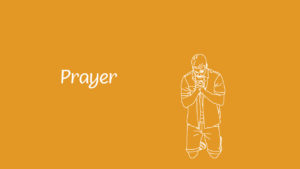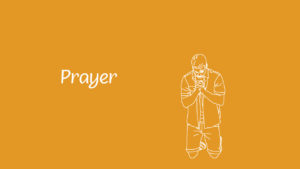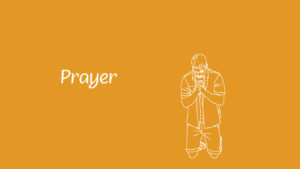An overview on the power of prayer by Skip Heitzig, following his Spirit Hacks series at Calvary Church Albuquerque

ALBUQUERQUE, NEW MEXICO–The earliest Christian believers huddled together in Jerusalem, listened to the apostles, and talked to God in prayer. There were a lot of things missing from that first church. They lacked charters, committees, strategies, and church buildings (things some would consider vital for church health). But one thing they had was power. Why? Because they learned to tap into the source of power through prayer. In this article, we take Pastor Skip’s teaching, Tapping into the Power Source, to examine the prayer life of the early church.
To get the most from this article, read Acts 2 and 4. At the end of this article, there are questions for you to ponder.
 The Disciples Prayed Regularly (Acts 2: 42)
The Disciples Prayed Regularly (Acts 2: 42)
Many great people of faith have stressed the importance of prayer. Martin Luther said, “To be a Christian without prayer is no more possible than to be alive without breathing.” EM Bounds stated, “God shapes the world by prayer. The more praying there is in the world the better the world will be, the mightier the forces against evil.” Yet for many, prayer conjures boredom or anxiety. But think of this: prayer is not meant to elevate anxiety, but to alleviate anxiety; it’s the key to joy (Philippians 4:6-7).
In Acts 2 we find the early church prayed regularly, not just on special days, but always. Jesus set the pattern of prayer-in word and deed, and the disciples followed. Variations of the word prayer occur over 370 times in the Bible; it’s an important topic. In Paul’s first letter to the Thessalonians, he said to “pray without ceasing” (v. 5). This means constantly recurring, not constantly occurring.
Pastor Skip’s point? Make prayer a regular part of your everyday life.
They Prayed Customarily (Acts 2: 42)
The early Christians prayed customarily, meaning they participated in the life of temple prayers. In Acts 2, the word for “prayer” is literally “the prayers,” plural; it was a reference to a known, practiced manner of praying. As an example, Paul worshiped in the temple, as was his “custom.” The early church saw the old prayers of the Bible through new eyes: they were fulfilled in Jesus Christ. Both personal and public prayers were part of the Christian life in the early church.
They Prayed Instinctively (Acts 2: 42)
The first thing the early church turned to was prayer; it wasn’t an after thought. It wasn’t like they said, “We’ve tried everything else; now all we have is prayer.” No, prayer was the beginning. Likewise, it should be the first thing Christians turn to today. It’s as Corrie ten Boom asked, “Is prayer your steering wheel or you spare tire?”
Prayer Was Honest (Acts 4: 24-31)
Looking to an actual prayer Christians gave in Acts 4, we find that prayer had several characteristics. The first is that it was honest. There was nothing pretentious about the the prayer; they were real and relevant to their lives. In a similar manner, if you look at the Psalms one thing is clear: they are honest declarations, lives poured out in prayer. The point? Be honest and open before God.
 Prayer Had Perspective (Acts 4: 24-31)
Prayer Had Perspective (Acts 4: 24-31)
As Acts 4 shows, the prayers had an address; the pray-er knew Who they were praying to. Likewise, when we pray, we should realize who we’re talking to, the Autocrat of the Universe, the Sovereign Lord (Jeremiah 32:17). Like directions to a place, knowing who we pray to provides perspective, an address for us to address our prayers.
We often like to limit God, but our concept of God is, like J.B. Phillips reminds us, “too small”; our view of God is not big enough. So here’s a tip: When in trouble, when overwhelmed, let your inability be overwhelmed by God’s ability. Find texts in the Bible that describe God’s majesty and control, and prayer these promises.
Prayer mixed with Scripture provides great perspective.
Prayer Was Balanced (Acts 4: 24-31)
The early church prayers combined an assortment of elements: petition, adoration, confession, thanksgiving–even history. This tells us the prayers were balanced. They didn’t stress one element over the other. Like the model prayer given by Jesus (Matthew 6: 9-13), the pattern of prayer in the early church kept a balanced perspective on our spiritual and physical needs.
Prayer Was Specific (Acts 4: 24-31)
The prayers of the early church were not vague; the disciples prayed for specific things; the prayer got to the point. Here’s something to ponder: God doesn’t need more information; He wants specific prayers, where He will provide specific answers. The outcome may be an answered prayer, or maybe a “no” or “wait.” But God answers prayers according to His will. So don’t try to impress God with words; rather, worship Him through prayer, aligning His will to your will.
Prayer Had Results (Acts 4: 24-31)
In Acts 4 we find that God answered honest, balanced and specific prayers in two ways: physical (the place was “shaken”), and practical (they disciples received “boldness”). Please notice the phrase in verse 24, “they prayed.” There was corporate prayer by many people. The principle? There is power in God’s people praying together; prayer turns the power on for the people of God.
Remember: the key to prayer is not the length of the prayer, but to Whom it is addressed. As Max Lucado reminds us, “Our prayers may be awkward. Our attempts may be feeble. But since the power of prayer is in the One who hears it and not in the one who says it, our prayers do make a difference.”
Pastor Skip defines prayer simply: prayer voices our dependence on God and God likes it.
 Prayer Tips
Prayer Tips
To give the most to prayer, Pastor Skip recommended the following:
- Pray simply
- Read scripture while you pray
- Start a prayer journal to document your specific prayers
- Pray in real time: as you greet someone, as you talk with someone; don’t just wait to pray; pray then and there.
- Find a prayer template that works for you. As an example, the Lord’s Prayer or ACTS (adoration, confession, thanksgiving, and supplication)
Now some questions for you to ponder as you think about prayer:
Connect Up
Because God is a personal God, communication is imperative to a personal relationship with a living and loving God. Prayer at its core is us conversing with the Creator, bringing our affairs, our adoration, and alignment to His will into view. Using the following verses concerning prayer, what does prayer tell you about our great God?
- Moses’ prayer (Exodus 32:9-14)
- Hezekiah’s prayer (2 Kings 19:14)
- David’s prayer of confession (Psalm 51)
- David’s prayer of surrender (Psalm 139)
- Nehemiah’s prayer (Nehemiah 1:1-2:9)
- The Lord’s Prayer (Matthew 6:5-15)
- Jesus’ prayer at Gethsemane (Luke 22:39-46)
- Jesus’ prayer for His people (John 17)
Connect In
Think of a situation when a prayer was answered. When did you realize that God answered your prayer and what was your reaction? Describe the story leading up to the answered prayer to someone, using it as a took to tell others about Christ.
Connect Out
Now just don’t talk about prayer: pray for family, friends, the Church universal, and those in need. Give specific requests, with balance, making them real and relevant to the needs of our community, knowing that God will answer them according to His will.
To learn more about the Spirit Hack series, go to http://www.calvaryabq.org/.






